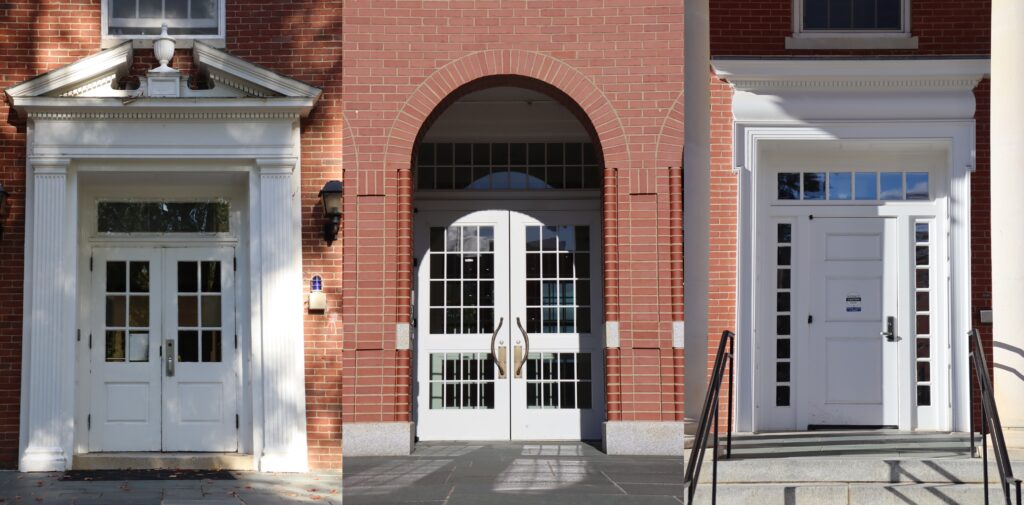Lock-out fee implemented
3 min read
Front doors of Bushnell Hall, The Link and Mason Hall. | Sarah Sklar, The Weekly Ringer
YAMILA MERIDA
Staff Writer
On Oct. 11, UMW implemented a new policy where students who need a Resident Assistant to unlock their rooms on campus will be charged a $10 lock-out fee on their student account. Students have one free lock-out service per semester but will be charged $10 for each additional one.
The Office of Residence Life and Housing sent an email on Sept. 29 informing students about the new policy. The department states in its email that the policy was created “to help alleviate the number of calls received and the impact they have on limited staff resources.”
However, if the lockout is caused by something out of the student’s control, like a broken lock, they will not be charged.
Senior Resident Assistant and sociology and pre-law double major, Aakrista Rupakheti, said that this type of fee is not uncommon.
“I think $10 is a reasonable fee. I know other schools that charge $30 or $60,” she said. “The reason why students are charged is that as an RA you can get called at any time in the early morning to handle lock-outs, and it’s kind of unfair.”
The 2022-23 Student Handbook states that “Students are expected to carry their room keys and Eagle One IDs at all times” but should contact Residence Life and Housing or the RA on duty phone if they are locked out.
In the past, students have not been charged a fee for being locked out and would either let their RA or the RA on duty know they have been locked out.
“Some people aren’t just purposely leaving their keys, but they know that someone will let them in, and they’re not being mindful of other people’s time,” said Rupakheti.
To avoid the lock-out charge, students are asking their roommates to let them in, rather than contacting Residence Life staff.
“I know people have been asking their roommates to get in more often because they don’t want to be charged,” said Nahjah Wilson, a sophomore political science major. “I make sure if I don’t have my key, I’d ask one of my roommates to unlock the door or grab my key. I may leave the door unlocked too.”
Student lock-outs are common and happen for different reasons.
“Unfortunately one night before an exam, I was pulling an all-nighter to study for it. I had thought I had taken a nap for 20 minutes but when I woke up I realized I slept for an hour and my exam was about to start in 15 minutes,” said McKenna LaFontaine, a senior psychology major. “I quickly got dressed and ran out of the room. I got to class, took my exam, and realized I had forgotten my keys on the bed.”
Rupakheti said RAs are not receiving the money from the lock-out charges.
“I think the money is going to the committee or the university fund, but us RA’s aren’t receiving those $10,” she said.
Wilson believes the RAs should receive some of the money.
“I just don’t like how RAs aren’t getting anything from this,” said Wilson.
LaFontaine believes that the price of the charge should be decreased.
“The charge itself I think should decrease because it’s not like they have to call a locksmith to break the lock,” she said. “There are multiple master key rings.”
Rupakheti also thinks the fee should be decreased.
“I think they should decrease the pay to $5 because many residents are already paying so much for tuition and some come from low-income families,” she said. “They can’t afford to pay $10 each time. It just adds up.”
Overall, Rupakheti hopes that the new policy will help students be more responsible with their keys.
“I feel like it will make students more mindful and remind themselves, ‘Oh, let me make sure to grab my keys before I go out.’ I think it will have a positive change,” she said.











